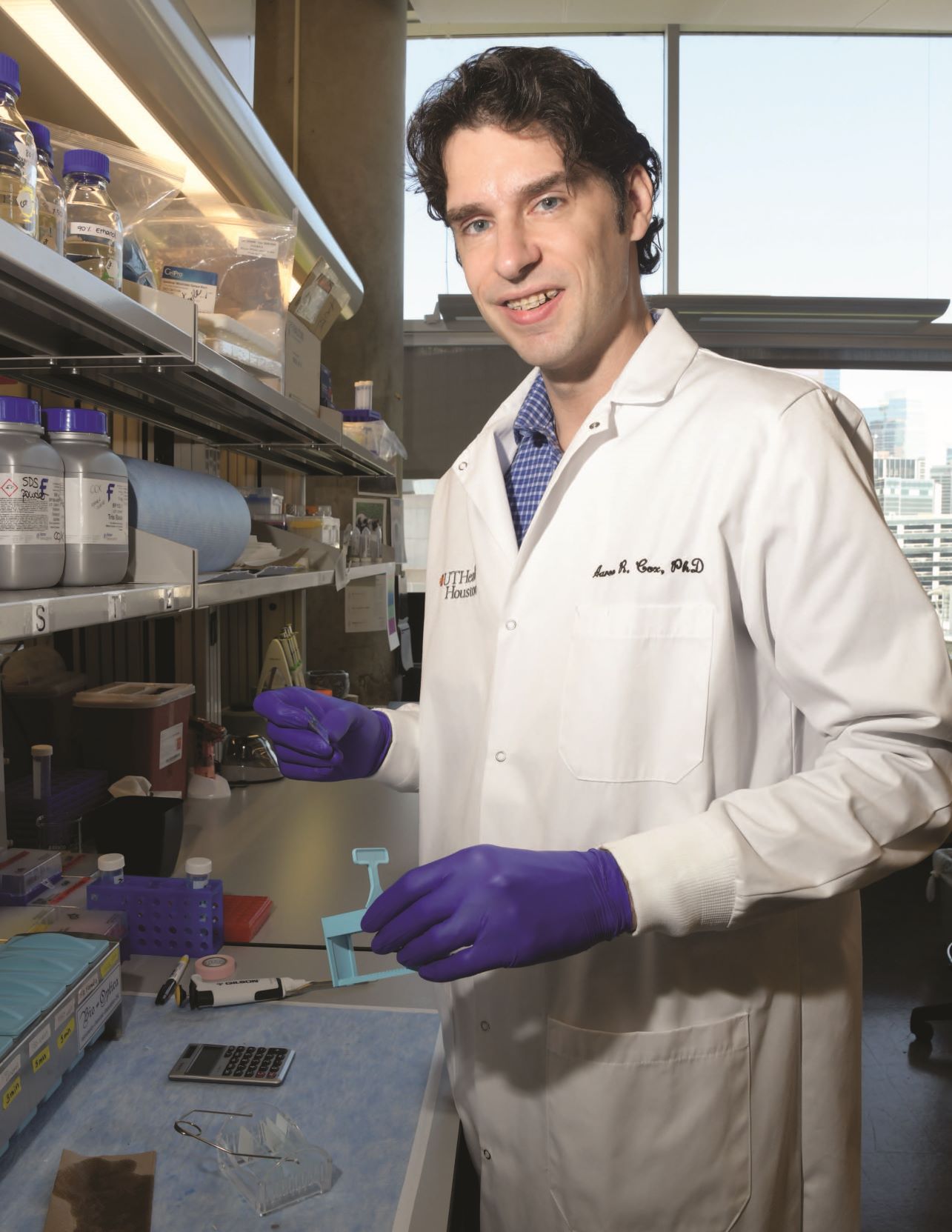NEW FACULTY EXPANDS CENTER’S RESEARCH TO PANCREAS

Dr. Aaron Cox studies the pancreas as a research target in the Center for Metabolic and Degenerative Diseases.
The IMM’s Center for Metabolic and Degenerative Diseases has grown its research capacity not only with a new faculty member but also with a new organ of research interest. Home to a large group of researchers focused on metabolism and metabolic disorders in areas including adipose tissue, liver, muscle, and brain, the addition of Aaron Cox, PhD, in September 2023, adds the pancreas to the center’s expanding research targets. “The pancreas was one area that was lacking, and this is a really unique opportunity to do a lot of cross-organ studies,” said Cox, assistant professor who focuses on pancreatic islets, which help regulate blood sugar levels.
Cox joined the IMM following postdoctoral training at Baylor College of Medicine. “UTHealth was actually my last interview, and I kind of walked in a little unsure of what to expect, and by far, the people just blew me away,” he recalled. “I was very impressed by their caliber of research and how personable, open, and friendly they were. You could tell the environment was quite exceptional, and then of course I could see a lot of opportunities for collaboration.”
Over the years, Cox has studied various aspects of nutrients and hormone signals that regulate the growth and function of pancreatic islets – primarily how their function can be improved to maintain blood sugar levels and how insulin-producing cells could be grown or regenerated as a replacement therapy for Type 1 diabetes. In Type 1 diabetes, he said, a significant loss of insulin producing cells, which are key to clearing blood sugar to be used as the body’s fuel, results in harmfully high levels of sugar. “We’re taking a couple of different approaches to find ways to regenerate these cells and hopefully have a new therapeutic mechanism to transplant and replace the cells that have been lost,” he explained.
Cox said his interest in pancreatic islets goes back to his college undergraduate days. “I was sitting in a senior level course learning about human development and how different insults impact the trajectory of an organ that make it susceptible to diseases in adulthood,” he said. “It opened up my eyes to this really interesting intersection between development and metabolism. A lot of dietary and other nutrient signals can really influence our short-term as well as long-term health.”
A day when people living with diabetes no longer have to depend on a device or give themselves shots for insulin is Cox’s research dream. “There is so much stress and anxiety around the constant checking of sugar levels and concern for dangerously low sugar when too much insulin is given. Restoring the balance of sugar levels through systems naturally designed to do so is really important.
“The goal would be to stimulate regeneration within the body or generate a cellular therapy to be transplanted to restore the natural amount of insulin producing cells so they no longer require injections, or an external device to provide insulin,” he said. “Through the support of IMM and UTHealth Houston, we are making significant progress toward our ultimate goal.”
